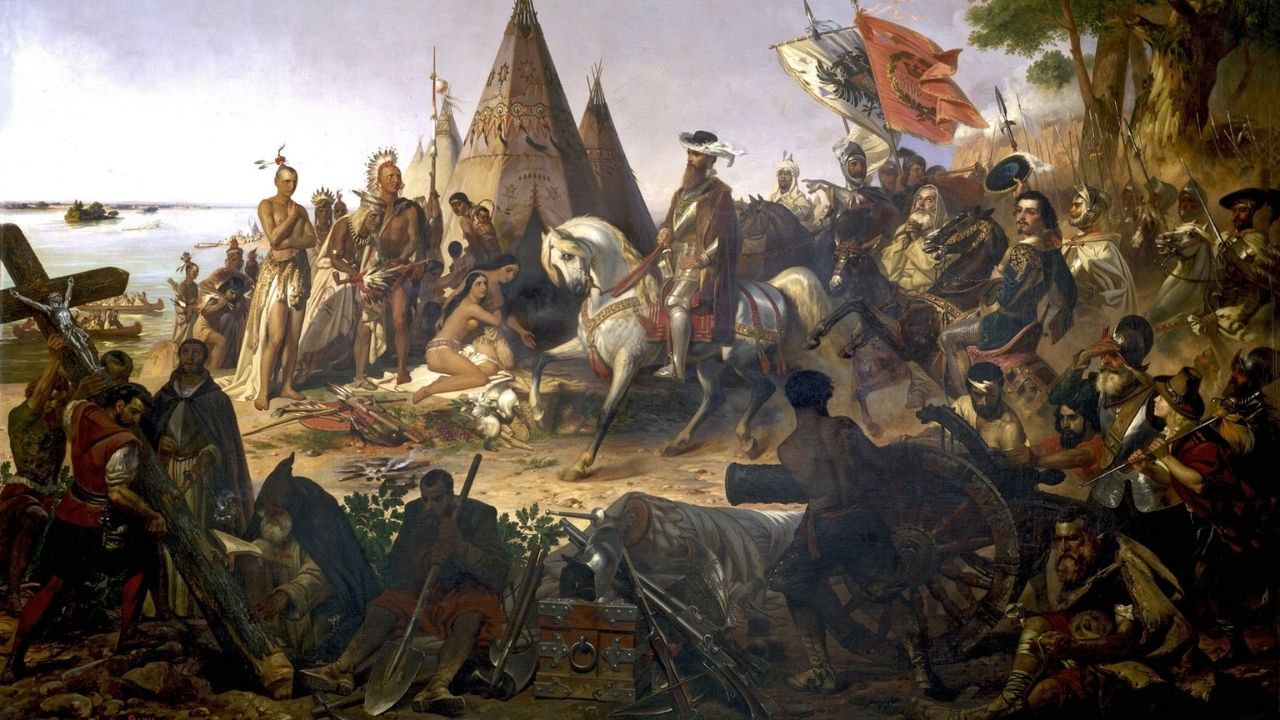
Why do people explore? Humans have always been curious creatures. From ancient mariners sailing uncharted seas to astronauts venturing into space, exploration is in our DNA. Exploration satisfies our thirst for knowledge, helps us understand our world better, and often leads to groundbreaking discoveries. Whether it's uncovering new lands, studying unknown species, or pushing the boundaries of technology, exploration drives progress. It’s not just about the destination but the journey itself. This spirit of adventure fuels innovation, fosters cultural exchange, and inspires future generations. Ready to dive into some fascinating facts about exploration? Let's embark on this journey together!
The Age of Exploration
The Age of Exploration, also known as the Age of Discovery, was a period from the early 15th century to the early 17th century. During this time, European explorers traveled the world in search of new trading routes and partners.
- Christopher Columbus set sail in 1492, aiming to find a new route to Asia but instead stumbled upon the Americas.
- Ferdinand Magellan led the first expedition to circumnavigate the globe, although he didn't survive the journey.
- Vasco da Gama was the first European to reach India by sea, linking Europe and Asia via the ocean.
- John Cabot explored the coast of North America under the commission of Henry VII of England.
- Hernán Cortés conquered the Aztec Empire in present-day Mexico, drastically altering the region's history.
Space Exploration
Space exploration began in the mid-20th century and has since expanded our understanding of the universe. Human curiosity and technological advancements have driven this quest.
- Sputnik 1, launched by the Soviet Union in 1957, was the first artificial satellite to orbit Earth.
- Yuri Gagarin became the first human in space in 1961, orbiting Earth aboard Vostok 1.
- Apollo 11 mission in 1969 saw Neil Armstrong and Buzz Aldrin become the first humans to walk on the moon.
- Voyager 1, launched in 1977, is the farthest human-made object from Earth, now in interstellar space.
- International Space Station (ISS) serves as a habitable artificial satellite and laboratory for scientific research.
Ocean Exploration
Oceans cover more than 70% of Earth's surface, yet much of them remain unexplored. Ocean exploration has revealed incredible marine life and underwater landscapes.
- Jacques Cousteau co-developed the Aqua-Lung, making underwater exploration more accessible.
- Mariana Trench is the deepest part of the world's oceans, reaching depths of about 36,000 feet.
- HMS Challenger expedition (1872-1876) laid the foundation for modern oceanography.
- Titanic wreck was discovered in 1985, lying about 12,500 feet below the surface of the North Atlantic.
- Deep-sea hydrothermal vents were discovered in 1977, revealing ecosystems thriving without sunlight.
Polar Exploration
The polar regions have long fascinated explorers due to their harsh conditions and unique ecosystems. These expeditions have expanded our knowledge of these remote areas.
- Roald Amundsen was the first person to reach the South Pole in 1911.
- Robert Peary claimed to be the first to reach the North Pole in 1909, though this is disputed.
- Ernest Shackleton led the Endurance expedition, which became famous for its survival story after the ship was trapped in ice.
- Fridtjof Nansen crossed Greenland's ice cap in 1888, proving it was possible to traverse the island.
- Antarctic Treaty was signed in 1959, dedicating the continent to peaceful scientific research.
Exploration of the Human Body
Understanding the human body has been a quest for centuries, leading to significant medical advancements and knowledge.
- Andreas Vesalius published "De humani corporis fabrica" in 1543, revolutionizing the study of human anatomy.
- William Harvey discovered the circulation of blood in the 17th century, changing the understanding of the cardiovascular system.
- X-rays were discovered by Wilhelm Conrad Roentgen in 1895, allowing non-invasive internal imaging.
- Human Genome Project, completed in 2003, mapped all the genes in human DNA.
- MRI (Magnetic Resonance Imaging) technology, developed in the 1970s, provides detailed images of soft tissues in the body.
Technological Exploration
Technological advancements have driven exploration in various fields, from computing to artificial intelligence.
- Alan Turing is considered the father of computer science, laying the groundwork for modern computing.
- Internet began as ARPANET in the late 1960s, revolutionizing communication and information sharing.
- Artificial Intelligence (AI) has advanced rapidly, with applications ranging from healthcare to autonomous vehicles.
Final Thoughts on Exploration
Exploration has always been a driving force behind human progress. From ancient navigators charting unknown seas to modern astronauts venturing into space, the quest for knowledge pushes boundaries. These 28 facts highlight the incredible achievements and surprising details about exploration. They remind us of the courage, curiosity, and innovation that define humanity's spirit. Whether it's discovering new lands, diving into the ocean's depths, or reaching for the stars, exploration continues to inspire and challenge us. Keep these facts in mind next time you hear about a new discovery or adventure. They show how far we've come and hint at the endless possibilities ahead. So, stay curious, keep learning, and who knows? Maybe you'll be part of the next great exploration story.
Was this page helpful?
Our commitment to delivering trustworthy and engaging content is at the heart of what we do. Each fact on our site is contributed by real users like you, bringing a wealth of diverse insights and information. To ensure the highest standards of accuracy and reliability, our dedicated editors meticulously review each submission. This process guarantees that the facts we share are not only fascinating but also credible. Trust in our commitment to quality and authenticity as you explore and learn with us.
